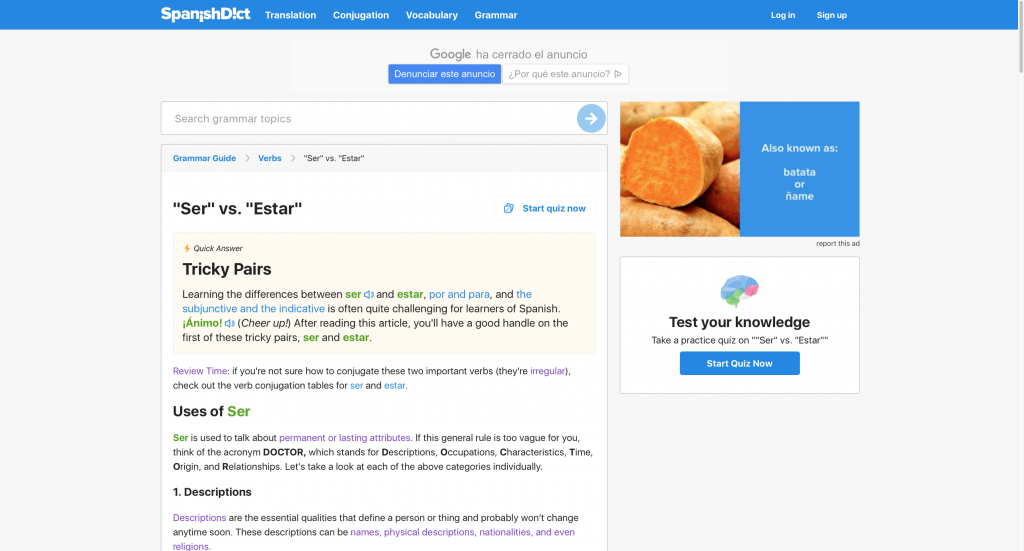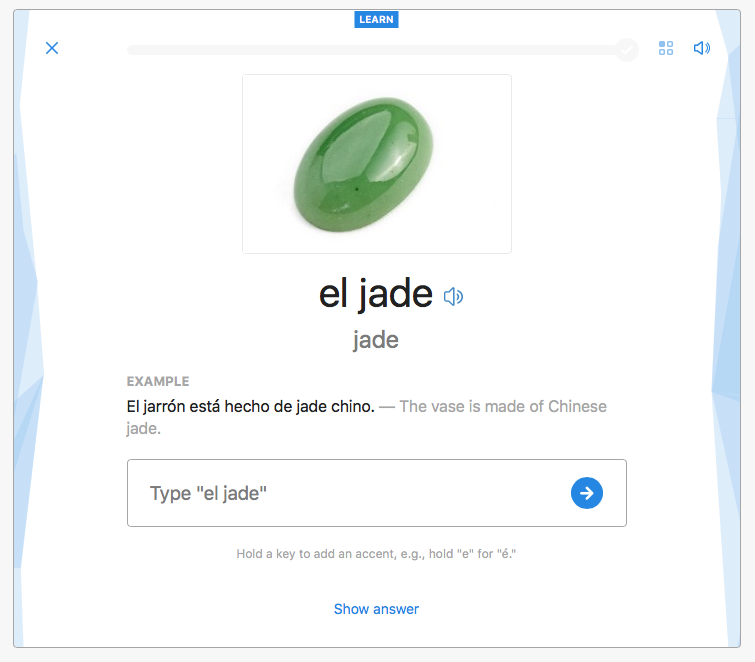Transitioning from English-French dictionaries to French-only dictionaries is a big step towards fluency but it can be intimidating. Luckily, online resources exist to help make French dictionaries more accessible.
For intermediate to advanced French learners seeking to take their vocabulary and understanding to the next level, The Centre national de ressources textuelles et lexicales (CNRTL) is an invaluable online resource. It is a searchable compendium of French language dictionaries, most notably Le Trésor de la langue française informatisé and the 9th edition of the official Dictionnaire de l’Académie française. For those interested in French outside l’Hexagone, CNRTL also has a searchable “Francophone” dictionary.
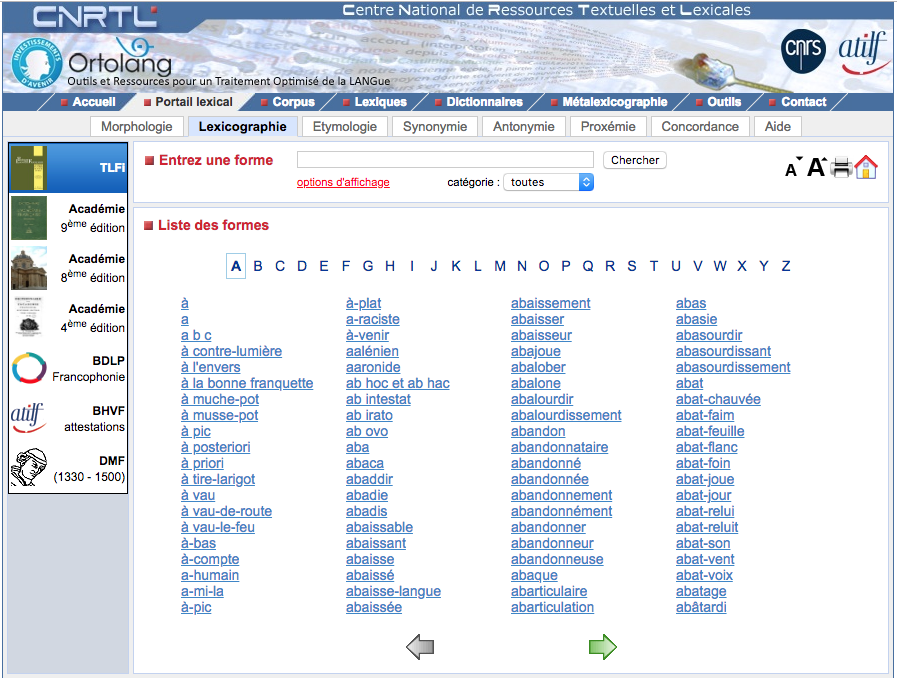
As a pedagogical tool, CNRTL, particularly when set to the TLFi (Le Trésor), does an excellent job of breaking definitions down into more digestible parts while also clearly differentiating between different uses of the words (metaphoric, literal, etc). Rather than struggling through an entire entry, the website quickly draws your attention to short portions of the text that are most essential.
By clicking “options d’affichage” you can toggle the color-coding settings to highlight what you’re looking for. The default settings use yellow for definitions, green for the word as it is used in a phrase, and orange to specify a certain technical domain or context in which the word may be used. Most un-colored text consists of examples of the word used in a sentence.
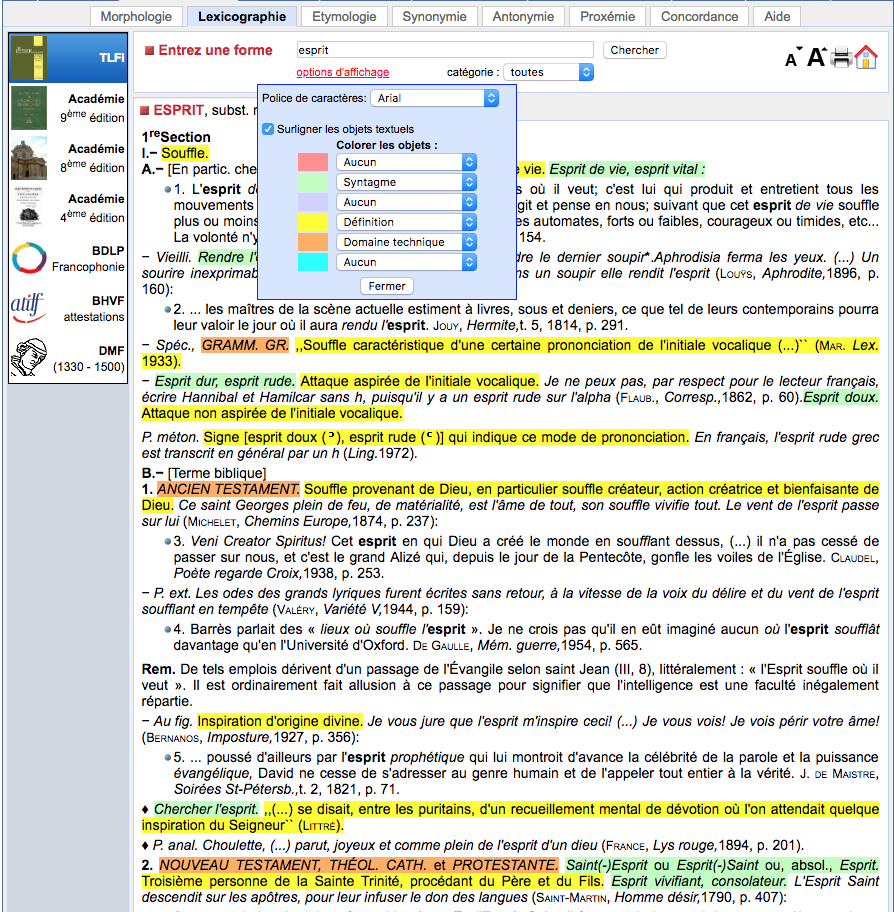
Beyond dictionaries, the portal also offers additional tabs such as etymology, synonyms, and antonyms, for those interested in the relations between words. The synonym tab is particularly useful when it comes to spicing up your writing (for example, when you’ve used “aussi” far too many times in one paper). It can also be helpful when it comes to making connections between the literal and metaphorical senses of words.
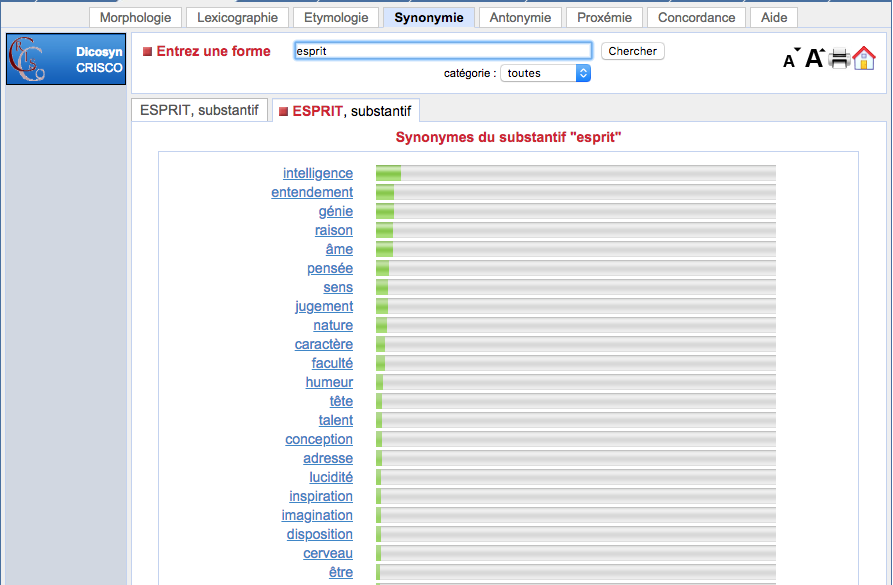
The website is full of other resources worth exploring, including several collections of works in French, and a database of “ghost” words lost to time.
You can access the dictionaries and pages pictured here at https://www.cnrtl.fr/definition/
Bonne exploration!



